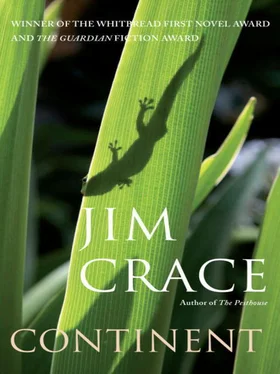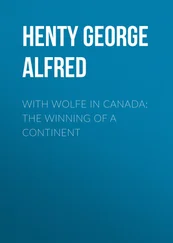‘Did you go to the nightclub?’ they ask.
‘Yes, many times, I was the guest of my friends’ fathers. We had reserved tables close to the stage. There was a beautiful singer from Rome. There was an orchestra. There was an exotic dancer who took most of her clothes off and did cartwheels amongst the customers. There was dancing and girls to dance with.’
‘Did you dance, Lowdo?’
‘No, not with the girls. But once I got drunk on French wine and danced a country egg dance for them, right there on the stage, with the spotlight on me and the orchestra struggling for a tune. I broke a dozen eggs and a wine glass, but nobody cared. You can behave how you want in a nightclub. That’s what they’re for. Everything is allowed so long as you can pay. The eggs and wine glass were on the bill.’
My hosts are happy at the thought of my broken eggs in the city. I am hugged and kissed, my hair ruffled, my cheek pulled. Here it is not a faux pas to touch.
‘We have a fully suckled calf for your father,’ I am told by the mother, her thin arm resting intimately across my shoulder. ‘Will you take it with you now? The herd are restless. We have her tied in the shed but still the herd are restless. They know she’s there.’ She takes a large round cheese and places it, in a cloth, on the ground at my feet. ‘This is for your father,’ she says, ‘if he will take this calf.’
‘Let me see the animal,’ I say.
She leads me out of the compound to a shed well away from the house and pulls back the leather from the door. The young heifer is brought into the open. I kneel to examine her. Her genitals are badly malformed, her vagina wide and exposed with an enlarged clitoris and a stringy tuft of vulval hair. Her udders are undeveloped. A fold of skin — a rudimentary penis — runs from her udders to her navel. She is a freemartin, the malformed, cursed and sexually disruptive twin of a bull calf. She is the warped demon of fertility. I tie her lead to the saddle of the mule (she tries to mount him, to excite him) and set off for my father’s compound and his herd of ninety freemartins.
‘CHATTER, chatter,’ says my father. ‘Is that all you’ve picked up in the city?’ He unwraps the neighbour’s cheese and holds it to his nose. ‘Hmm, too fresh.’ He has been spoiled, not liberated, by wealth. He is unlike your fathers. Mean and cunning in outlook, tough, violent in his own defence, narrow-minded, readily pleased and easily offended, unloving. He bullies me with his ignorance. I bully him with my learning. I hold out a textbook. (He doesn’t read, of course.)
‘So this is chatter? The education that you’ve bought me, all the latest wisdoms — just “chatter” to you! Listen!’ I read from the book: ‘“Twins in cattle have common membranes and a common blood supply. In nine out of ten of all cases where a heifer is twinned with a bull calf, the male hormone of the bull is thought to prevent normal development of the reproductive organs of the female or freemartin calf. Their gonads tend to resemble non-functionary testes, their Fallopian tubes and uterus are frequently only partially developed…”’
‘Chatter,’ says my father. Outside, in the long-shadowed dusk, ninety-one freemartins, recreant and degenerate, nuzzle stooks of scrub grass.
‘There’s nothing strange or magical or ill-omened about these cows,’ I tell him. ‘Listen to the book! There is … a … simple … biological … explanation! They’re just unlucky twins.’ My father rubs his palm with a forefinger to signal Money. He sweeps his hand grandly round the room to indicate his riches: the cluster of highly polished paraffin lamps, the ornate and ever-silent Italian accordion with its silver trim and mother-of-pearl decoration, the radio (batteries long dead), the bottles of brandy and Negrita, the rugs and tapestries, the clocks and mirrors, the grandiose safe which was brought by my grandfather from the city in a donkey cart in 1934. He flashes gold teeth, gold rings and a gold key to the family safe.
‘Chatter,’ he says.
In the morning a young man wrapped in a blanket is found sleeping on our veranda. My father wakes him and feeds him with sour bread and cheese and weak mint tea. The young man is soon to be married and has come to buy freemartin milk. My father, like a merchant selling bicycles or typewriters, lists the properties of his product. For centuries his family has been supplying young men with freemartin milk, he asserts. He provides only the best, unwatered and fresh. He gives good measure for a fair price. He has a family reputation to maintain. Potency is a complicated matter. He is a simple man and cannot explain its intricacies. But this has been proven by thousands of satisfied customers: freemartin milk makes all the difference to a nervous young man on his marriage night. It does the trick. None return dissatisfied or with complaints that the milk is powerless.
‘Sip this on the morning of your marriage,’ he says, producing a grimy jar, ‘and your wife will have no regrets. And when you want to have children, come back and buy some more. You will have sons.’ The young man hands over a tight bundle of banknotes. He and my father embrace. My father pours him a mouthful of rough spirit for the journey and presents him with the jar of freemartin milk.
Two women have been watching from a clump of aloes and, once the bridegroom has gone, they call my father, covering their faces with their shawls. They are sisters. They are barren. Both have been married for eight years. They have loving husbands. ‘But we have no children.’ My father advises them. ‘Infertility is a complicated matter,’ he explains. ‘I am an uneducated man. I cannot understand its intricacies. All I can understand is the evidence of my own eyes and what I have learnt from my father, my grandfather, my great-grandfather — all noble men. Drink my milk during your periods. Make your husbands sip a little, too, before you sleep together. You will have children.’ I look at the women’s thin ankles, their slight and bony figures, their heavy-knuckled hands and stiff fingers tugging at their shawls. And eat plenty of fruit,’ I want to tell them. ‘Fresh meat. Green vegetables. Cheese. Plain, cheap cow’s milk. You need protein, vitamins, and iron. Then you’ll have children.’
One of the women hurries forward to the open ground between the aloes and our house. She puts money under a stone and returns to her less bold sister. My father touches his chest at the spot where his unscientific prejudices imagine his heart to be located and gives thanks. He walks forward to exchange the money for jars of grey milk. Now the sisters scurry forward together, collect their purchases and depart.
In the evening a man of my father’s age arrives on an almost white mule. My father lights all his lamps to mark the importance of his guest, an old friend and the head of a respected family. Together they drink deep glasses of spirit and gently mock my studies at the university, my stiff city manners, my closely shaven face.
‘You have become a talking skull,’ the friend tells me. My father chuckles. ‘What? You don’t know the story?’ Of course I do. It is a folk-tale so familiar to every schoolchild in every continent that even hard-pressed teachers no longer tell it. But the man inhabits a less complicated universe than the schoolroom. He is committed to his tale. Nothing can stop him now. He settles back into the cushions and drains his glass. ‘There was a young man,’ he says, ’just like you. He left his father and his herd and his neighbours in his home village and went off to the city. Life would be easier there, he thought. Nobody heard from him for over a year. His face was forgotten. No word came to his father, or even to the girl who was his sweetheart. And then, one day, he showed up. Dressed like an American. Full of himself and his new lifestyle. And what a tale he had to tell! You’d think he’d discovered paradise. He boasted that he had found enlightenment in the city. “Nonsense!” they said. “There are no new wisdoms. All wisdoms are old.” But this young fellow thought he knew best. “Not so,” he said. “Listen to what has happened to me. I was walking in the city one night. I was lost. I was a little drunk. I found an old skull hidden in some bushes. I lifted it up and asked, ‘What brought you here?’ And the skull replied! It said, ‘Talking brought me here.’ Have you ever heard of such a marvel? I came straight back to the village to tell you about the skull that talks.”
Читать дальше












